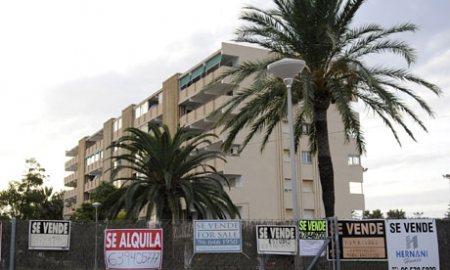 As a Spaniard who grew up in the UK, I have a strong connection with the motherland. I go back frequently and hope to buy a flat in the centre of Madrid in the next few years. But not now. Prices have fallen around 25% in Madrid since the peak in 2007 and much more along the coasts. There are nearly a million empty properties in Spain and only around a quarter of a million buyers. Just the opposite of the UK, especially London, where we take overwhelming demand and short supply for granted. So why not now?
As a Spaniard who grew up in the UK, I have a strong connection with the motherland. I go back frequently and hope to buy a flat in the centre of Madrid in the next few years. But not now. Prices have fallen around 25% in Madrid since the peak in 2007 and much more along the coasts. There are nearly a million empty properties in Spain and only around a quarter of a million buyers. Just the opposite of the UK, especially London, where we take overwhelming demand and short supply for granted. So why not now?
Lots of my friends are asking me what is going to happen to the Spanish economy. This week the Spanish government, whose lending costs have hit 6.3%, took a 40% stake in Bankia. The banking system in Spain is very fragile. Bankia was created out of a number of savings banks that hugely overstretched themselves in the property boom. In Spain, if you can’t pay your mortgage you give the property back to the bank who is then lumbered with it. Some have been sold at rockbottom prices, but many of these shrinking assets remain on the banks’ books. The Spanish government claims that Bankia is safe because the government is supporting it. But I believe quite the opposite: the government is now exposed to a seriously troubled bank.
Add this to other economic factors. First bonds – government borrowing – have risen to 6.30%. Then 25% unemployment makes a huge dent in the government’s ability to raise taxes and consumer demand has been similarly depressed. Government cuts are creating more unemployment and depressing the economy further. Spain has been in recession for three years. Its main industries are construction and tourism. Ironically the fall in the euro against the pound may encourage British tourists to return. But that’s exactly what Spain needs – a devaluation in its currency and whilst it is stuck in the euro it simply doesn’t have the powers to do that. It has to trade with a currency suited to the afluent, fiscally conservative Germany with its skilled workforce, plethora of industries and buoyant exports.
Now Spanish people are beginning to withdraw their funds from Bankia. It is the end of rationalism and we saw how irrational behaviour in the UK can take hold with Northern Rock. This is the beginning of the end for Spanish attempts to resist IMF and EU intervention. I see this as inevitable.
But will Spain stay in the euro? I think we have to look to Greece. 70% of Greeks think that the austerity plan agreed with Merkel should be reneagued upon. And 70% of Greeks want to stay in the Euro. The two positions are of course incompatible. All the signs are that Greece is about to elect a (far) left of centre of government for the first time. A government which is opposed to the EU agreement its position must surely force an exit from the euro. And can Greece really ever repay its euro debt? It simply cannot grow again with such a punitive austerity plan in place. So Greece will exit and that will open the door for other countries. Cue Spain, which would benefit hugely from the 40% devaluation that a return to the peseta would allow. Yes it will be very painful. But in the long run it would be for the best.
So in summary. Spain is in recession, government borrowing costs are over 6.30%, its banks have been downgraded, some to junk status, it has one of the highest debts in Europe, it has the highest level of unemployment, it is in recession with little prospect of recovery given the level of cuts, the government owns 40% of the first bank to fail, the public are starting to withdraw their savings. What do you think will happen?
One last point. Tell your Spanish friends and family, for the Spanish government are deluded. They put out soothing messages to calm the public and discourage them not to withdraw their savings, nor do they want to panic the markets. Remember Iceland?








